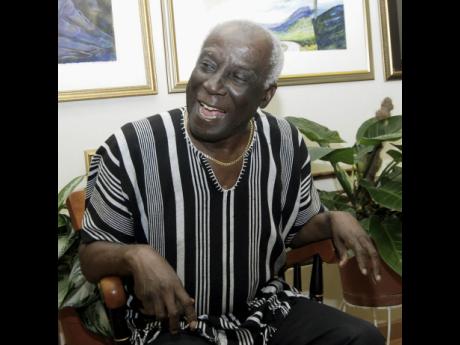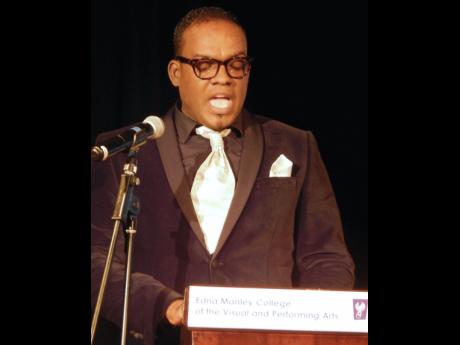For the Reckord | Millennials, new media at Rex Nettleford conference
According to Dr Keino Senior, a dean at the Edna Manley College of the Visual and Performing Arts (EMCVPA), "Preconceived notions of the (low) value of the arts and their seeming lack of viability, sustainability, and income-generating capacity abound in Caribbean society", and a "discourse on art and culture ... with millennials" (persons 18 - 35 years old) would be a powerful way of dispelling those notions.
That was the theme of Senior's address at the opening ceremony of the Rex Nettleford Arts Conference 2017 at the EMCVPA, October 11 - 13. It was also the conference's theme, as expressed by its cumbersome albeit easily understood title, Arts and Culture for the 21st Century: Millennial Dis-Engagement - Engagement - Re-Engagement.
Educator and author the late Professor Ralston 'Rex' Nettleford attributed the survival of Caribbean society to the "creative imagination of its people". said Senior. He added that like the cultural icon, art educators and practitioners in this millennium must recognise that culture is a key ingredient for the national and social development of Caribbean people.
Senior reminded his audience that "even before Nettleford, Marcus Garvey in his manifesto for Kingston and St Andrew council in 1929 saw the need for a stage to develop the arts and music in Jamaica."
Senior said the conference provided an opportunity for local, regional and global art educators, policy makers, researches and art practitioners to raise awareness and lead the discourse as cultural agents of change and expression.
"The goal is to provide connections and parallels that will serve to break boundaries of stereotypes yet, in the same breath, seek to provide art and create history to heighten the appreciation and knowledge of the arts' intrinsic value to society," he emphasised.
EMCVPA principal, Dr Nicholeen DeGrasse-Johnson, gave the vote of thanks.
New media
At one of the conferences many sessions, creative industries consultant and entrepreneur Bianca Welds spoke about how to connect with millennials with "new media". It is a term for mass communication using digital technologies such as the Internet, and including Facebook, Snapchat and Twitter.
Contrasting new media with traditional media (radio, television and print), which caters to millions, Welds said that new media could still be effective with audiences just in the thousands. She described the millennials in those audiences as well educated, driven by creativity and technology, and wanting "amazing experiences" and meaningful relationships.
Welds said collaboration and loyalty were important to them and interactive relationships especially so. They want to participate and even co-create the product, not just "spectate" - though, Welds said, most creative organisations (performing arts companies and visual arts institutions) are still stuck in the "spectating" mode.
Interaction is important to millennials, she said, advising listeners not to just show what they were doing but involve their patrons. Here, she gave the example of a theatre company which achieved success through having post-performance discussions with audiences, who also got to meet the actors.
Millennials are also very story-centric, Welds said, telling how the Chicago Symphony Orchestra began giving audiences the stories behind the classical pieces it performs. Other characteristics of millennials she mentioned were that they wanted instant effects, multi-sensory happenings (like immersive theatre) and variety in their experiences.
"Sometimes no two experiences are the same," she said, referencing Diner en Blanc, a secretive, flash-dining event spanning six continents, which has caught on in Jamaica.





